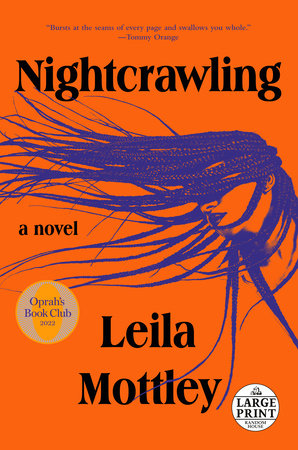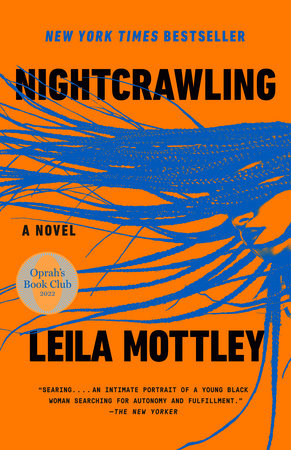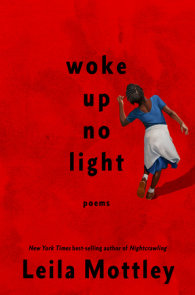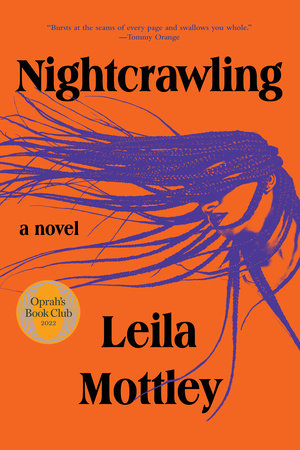

Nightcrawling
By Leila Mottley
By Leila Mottley
By Leila Mottley
By Leila Mottley
By Leila Mottley
By Leila Mottley
By Leila Mottley
By Leila Mottley
By Leila Mottley
Read by Joniece Abbott-Pratt
By Leila Mottley
Read by Joniece Abbott-Pratt
Category: Literary Fiction
Category: Literary Fiction
Category: Literary Fiction
Category: Literary Fiction
Category: Literary Fiction | Audiobooks

-
$17.00
Apr 11, 2023 | ISBN 9780593312605
-
$30.00
Jun 28, 2022 | ISBN 9780593607879
-
$28.00
Jun 07, 2022 | ISBN 9780593318935
-
Jun 07, 2022 | ISBN 9780593318942
-
Jun 07, 2022 | ISBN 9780593590041
649 Minutes
Buy the Audiobook Download:
YOU MAY ALSO LIKE
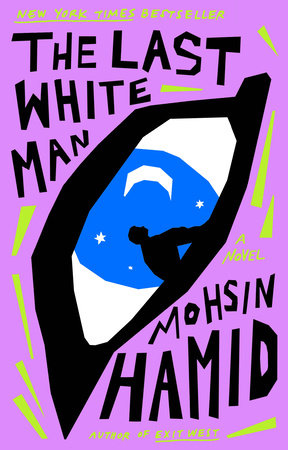
The Last White Man
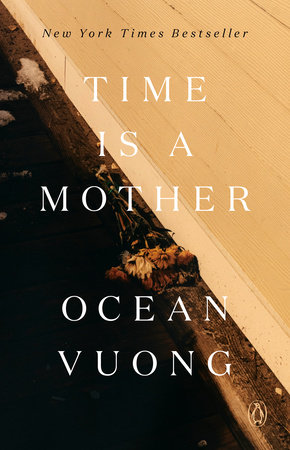
Time Is a Mother
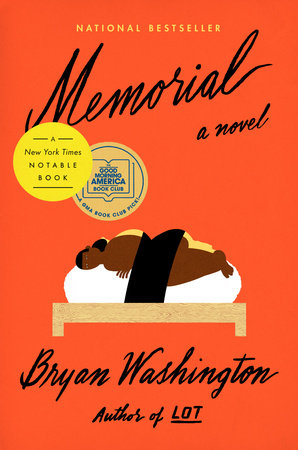
Memorial
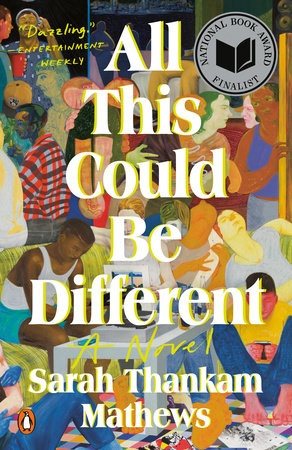
All This Could Be Different
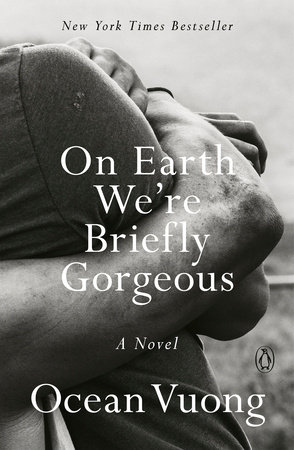
On Earth We’re Briefly Gorgeous
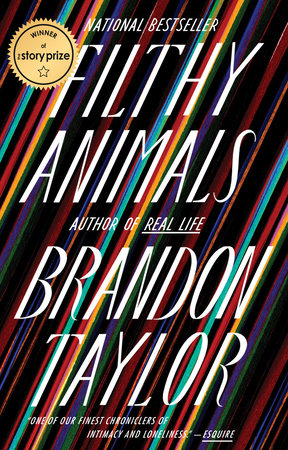
Filthy Animals
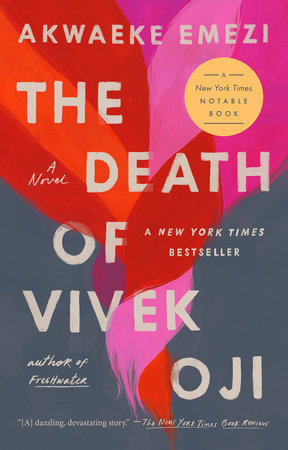
The Death of Vivek Oji
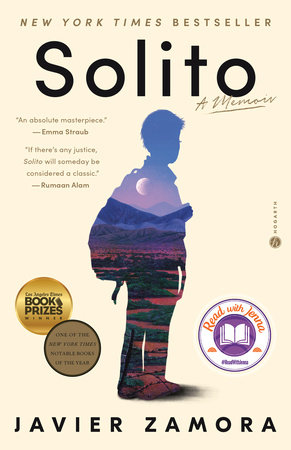
Solito: A Read with Jenna Pick
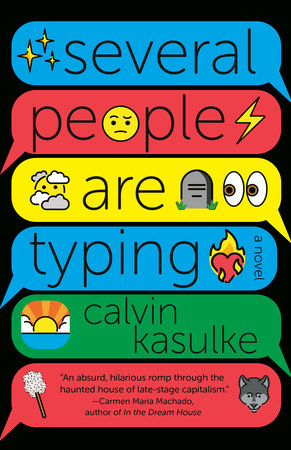
Several People Are Typing: A GMA Book Club Pick
Praise
A Best Book of the Year: The New Yorker, The Washington Post, Los Angeles Times, San Francisco Chronicle, TIME, GOODREADS
BOOKER PRIZE NOMINEE • A New York Times Writer to Watch • THE CENTER FOR FICTION’S FIRST NOVEL PRIZE NOMINEE • Lambda Literary Award Finalist
“Astonishing . . . Nightcrawling heralds a bold new voice in fiction.” —Associated Press
“Mottley writes with a lyrical abandon.” —New York Times Book Review
“Nightcrawling really is a powerful, poignant story worth your attention . . . Revelatory . . . My god—that voice. It’s sometimes too painful to keep reading, but always too urgent to stop.” —Ron Charles, Washington Post
“Dazzling and electrifying . . . A spellbinding story and a Catcher in the Rye for a new generation.”
—Booker Prize Judges 2022
“I would sell my soul to read this book again for the first time.”
—Jack Edwards, Booktok Influencer via TikTok @jackbenedwards
“A lyrical page-turner [by] that rare young phenom who isn’t a product of privilege.”
—Los Angeles Times, Gift Guide
“Nightcrawling bursts at the seams of every page and swallows you whole.” —Tommy Orange, author of There There
“Unflinching . . . Essential to understanding how maddeningly elusive justice can be.” —San Francisco Chronicle
“Nightcrawling is a scorching, incredibly readable book . . . Get ready. Or don’t. It doesn’t matter. Leila Mottley is here.” —Kiese Laymon, author of Heavy
“Nightcrawling marks the dazzling arrival of a young writer with a voice and vision you won’t easily get out of your head . . . When asked how to write in a world dominated by a white culture, Toni Morrison once responded: ‘By trying to alter language, simply to free it up, not to repress or confine it . . . Tease it. Blast its racist straitjacket.’ At a time when structural imbalances of capital, heath, gender, and race deepen divides, the young American Leila Mottley’s debut novel is a searing testament to the liberated spirit and explosive ingenuity of such storytelling.” —The Guardian
“Mottley accesses the feelings one sometimes has while reading Dickens, the breathless sense that some massive unfairness is being inflicted on a good and innocent person . . . Kiara’s true outlet for hope is in the makeshift family of friends and relatives she manages to hold together. From such connections Mottley’s seemingly fatalistic book finds its buoyant humanity.” —Sam Sacks, Wall Street Journal
“Leila Mottley’s commanding debut, inspired by the life events of one woman’s struggle for body and soul against crushing exploitation, is fierce and devastating, rendered with electrifying urgency by this colossal young talent.” —Ayana Mathis, author of The Twelve Tribes of Hattie
“A searing indictment of an unjust system.”
—TIME
“Mottley’s writing is electric and stylish, which makes her subject matter especially chilling.” —Teen Vogue
“Kiara’s voice—simultaneously childlike, lyrical, and fierce—is the most unforgettable element of Nightcrawling.” —Mother Jones
“Fast money, crooked cops, and dire consequences are at the forefront of Mottley’s electric debut novel . . . A shocking page-turner.” —Elle
“With its powerful poetry and courageous, unsparing vision, Nightcrawling is more than just a magnificent debut novel. It is a bid, by this prodigiously gifted young writer, to heal a broken world.” —Ruth Ozeki, author of The Book of Form and Emptiness
“Leila Mottley has an extraordinary gift. She writes with the humility and sparkle of a child, but with the skill and deft touch of a wizened, seasoned storyteller.” —James McBride, author of Deacon King Kong
“Electric . . . Not to be missed.” —Shondaland
“So compelling that one cannot put it down . . . Through Kiara, Mottley gives voice to countless Black women and girls who remain invisible, vulnerable, and dehumanized by a system that deems them disposable . . . We need Kiara’s story, but more importantly, we need young writers like Leila Mottley . . . A testimony to hope, resilience, and love.” —Liber: A Feminist Review
“Leila Mottley is a name to pay attention to . . . Nightcrawling will make you desperate, it will make you awed, it will make you read anything that Mottley should ever choose to write.” —CrimeReads
“Leila Mottley has a poet’s delicate touch when she tells us the most brutal, heart-crushing truths. This is an electrifying debut.” —Dave Eggers, author of The Every
“A remarkable debut novel . . . Incendiary . . . The captivating, distinctively voiced Kiara is a young black American who can shoot hoops and skateboard, but her literary antecedents are Zola’s Thérèse Raquin, Victor Hugo’s Fantine, and Elizabeth Gaskell’s Ruth.” —The Sunday Times (U.K.)
“This is an accomplished first novel with a remarkable heroine whom the reader wills on every step of the way . . . Both a searing depiction of sexual exploitation and a gripping account of a struggle for survival . . . Hard-hitting but never heavy-handed.” —The Economist
“Unflinching, poetic, and deeply resonant, this stunning debut from Oakland teen Leila Mottley marks the arrival of an extraordinary new voice.” —Woman’s Own (U.K.)
“Feels vital in this cultural moment . . . Fires on all cylinders.” —Sydney Morning Herald
“Stunning . . . Kiara is an unforgettable dynamo, and her story brings critical human depth to conversations about police sexual violence.” —Booklist (starred)
“A work of devastating social realism . . . executed with relentless momentum . . . A powerful discourse on the dehumanizing effects policing can have on marginalized communities, bodies, and minds (and especially on Black women).” —Library Journal (starred)
“Bold and beautiful . . . This heartrending story makes for a powerful testament to a Black woman’s resilience.” —Publishers Weekly (starred)
“Lush, immersive.” —Kirkus Reviews (starred)
“Moved me to tears . . . Mottley is a master at describing scenes.” —iNews
Awards
California Book Award WINNER 2023
Lambda Literary Award FINALIST 2023
Booker Prize LONGLIST 2022
Center for Fiction First Novel Prize LONGLIST 2022
PEN/Hemingway Award for Best First Novel LONGLIST 2023
21 Books You’ve Been Meaning to Read
Just for joining you’ll get personalized recommendations on your dashboard daily and features only for members.
Find Out More Join Now Sign In







